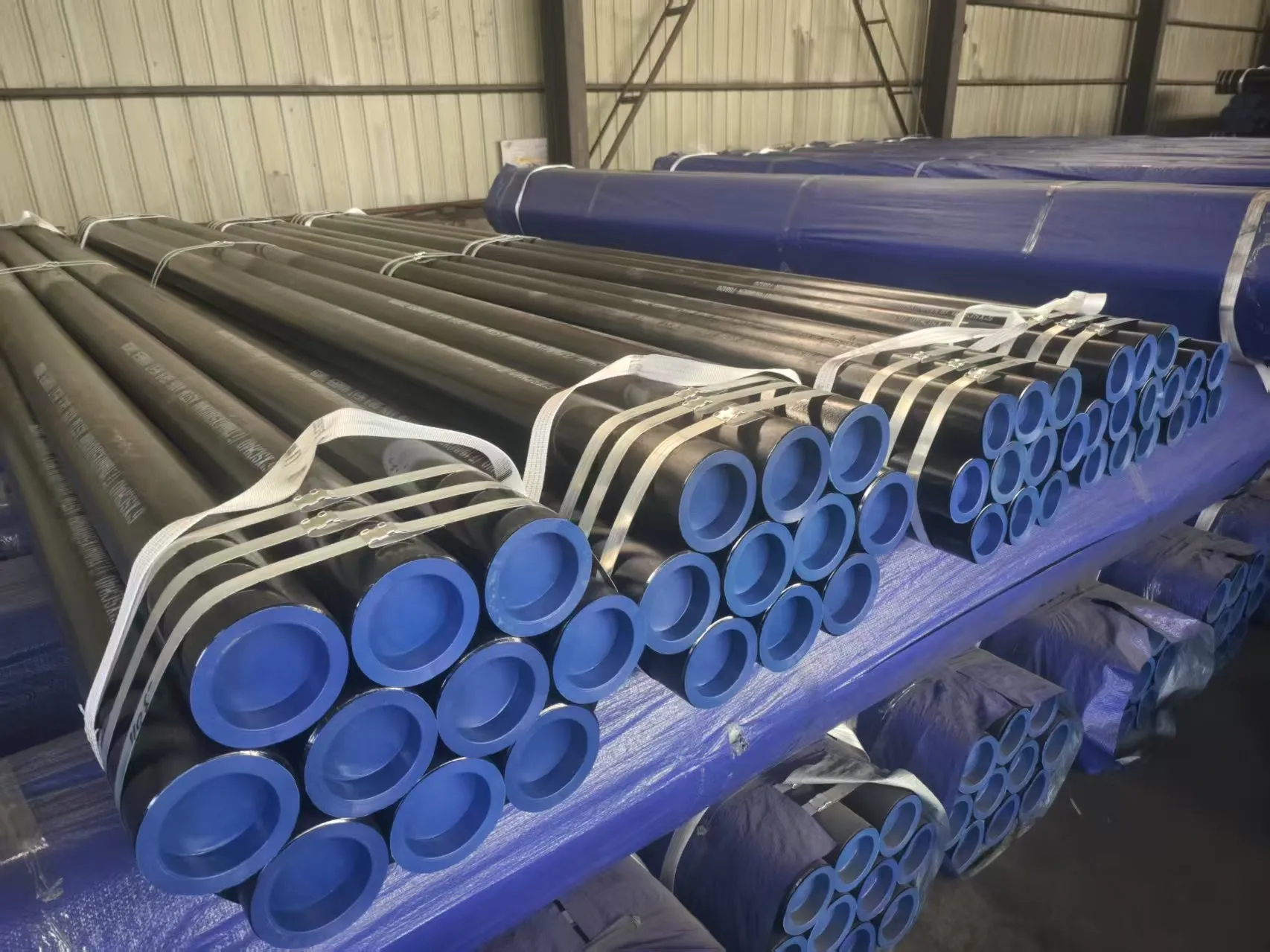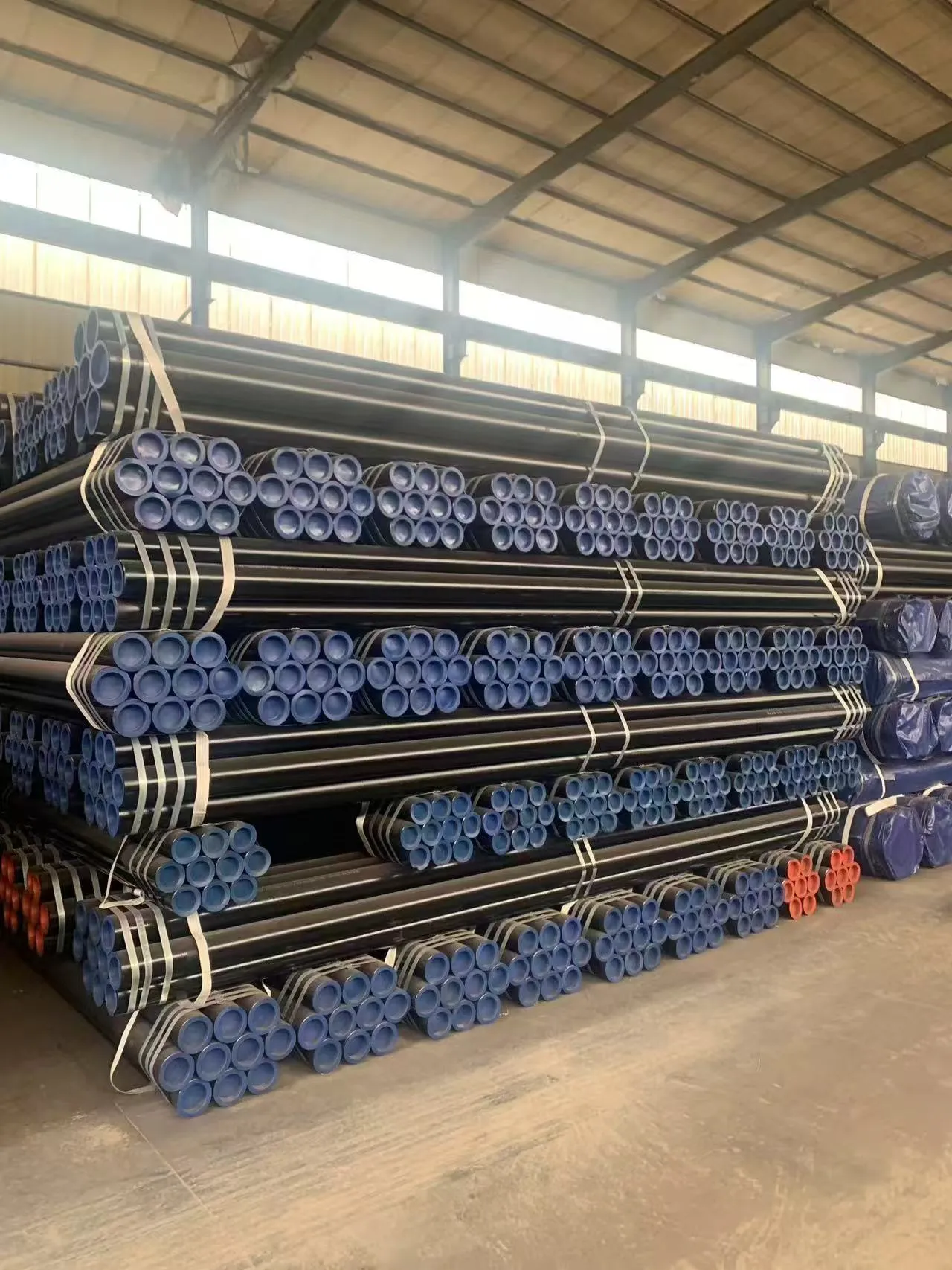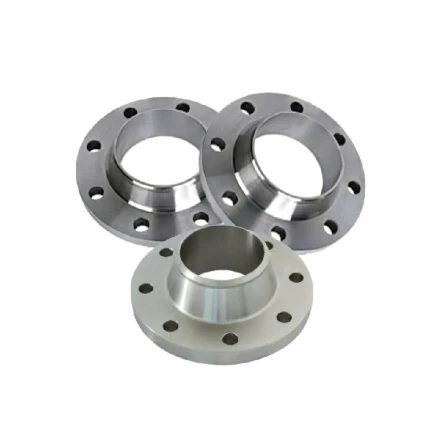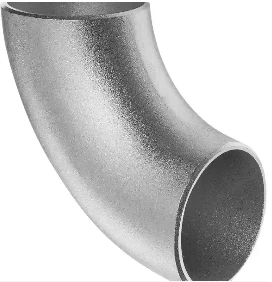Key Characteristics:
- 1.Material Composition:
- - API 5L X80 pipes are made from carbon steel, with controlled chemical compositions to achieve desired mechanical properties.
- - Typical chemical composition may include:
- - Carbon (C): ≤ 0.20%
- - Manganese (Mn): 1.00% - 1.50%
- - Phosphorus (P): ≤ 0.020%
- - Sulfur (S): ≤ 0.010%
- - Silicon (Si): ≤ 0.40%
- - Small amounts of alloying elements such as Nickel (Ni), Chromium (Cr), and Molybdenum (Mo) may be included to enhance impact toughness and corrosion resistance.
- 2. Mechanical Properties:
- - Yield Strength: Minimum yield strength of 80,000 psi (552 MPa).
- - Tensile Strength: Typically ranges from 85,000 psi to 100,000 psi (586 MPa to 690 MPa).
- - Elongation: Generally around 18% to 22%, depending on the pipe thickness.
- 3. Dimensions and Specifications:
- - API 5L X80 pipes are available in various dimensions and wall thicknesses to meet the requirements of different applications.
- - Nominal Pipe Sizes (NPS) can range from ½ inch to 48 inches or larger.
- - Common wall thicknesses are specified in accordance with pipe schedules, such as Schedule 40, Schedule 80, etc.
- 4. Manufacturing Process:
- - API 5L X80 pipes can be manufactured through two primary methods:
- - Seamless: These pipes are produced without welded seams, resulting in high strength and durability.
- - Welded: Made from rolled steel plates or coils welded longitudinally or spirally, providing good performance for various applications.
- - Strict quality control procedures, including non-destructive testing (NDT), ensure the integrity of the finished product.
- 5. Coatings and Finishes:
- - API 5L X80 pipes may be coated with various protective materials to enhance resistance to corrosion:
- - Bare steel (uncoated)
- - Fusion Bond Epoxy (FBE)
- - Three-Layer Polyethylene (3LPE)
- - Three-Layer Polypropylene (3LPP)
- - Other specialized coatings may be applied depending on environmental conditions and service life expectations.
- 6. Applications:
- - API 5L X80 pipes are widely used in the oil and gas industry, particularly for high-pressure pipeline systems.
- - Suitable for both onshore and offshore applications, including long-distance transportation of oil, natural gas, and other fluids.
- - Can also be used in water distribution, mining operations, and other industrial applications.
- 7. Standards and Compliance:
- - API 5L X80 pipes conform to API standards, ensuring consistent quality and reliability for pipeline applications.
- - Additional industry standards (such as ISO, ASTM) may apply based on specific project requirements.
- 8. Testing and Quality Control:
- - Comprehensive testing is conducted to validate the quality and performance of API 5L X80 pipes:
- - Hydrostatic testing to check for leaks and assess strength.
- - Non-destructive testing (e.g., ultrasonic, radiographic) to evaluate the integrity of welds and materials.
- - Mechanical testing to verify yield strength, tensile strength, and elongation properties.
- Summary:
- API 5L X80 pipes are designed for superior strength and reliability, making them particularly suitable for high-pressure applications in the oil and gas sector. Featuring a minimum yield strength of 80,000 psi, these carbon steel pipes are engineered for demanding operational environments. When selecting API 5L X80 pipes, considerations such as pipe size, wall thickness, coating options, and compliance with relevant standards are essential. Regular inspections and maintenance are crucial for ensuring long-term reliability and safety in pipeline systems.
Schreift Äre Message hei a schéckt en un eis















